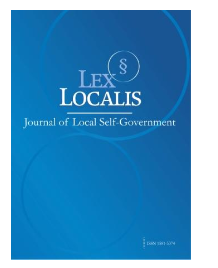GLOBAL PARADIGM DOMESTIC STRATEGY: STAKEHOLDERS' PERSPECTIVES
DOI:
https://doi.org/10.52152/801938Ključne besede:
Strategy, Globalization, Sustainable Development, Banking.Povzetek
As a global movement, the promotion of the Sustainable Development Goals (SDGs) persists despite ongoing economic challenges, ranging from the aftermath of COVID-19 to rising geopolitical tensions. In this context, various sectors, including the Sharia-compliant banking industry, have been mobilized to support these goals. Sharia banking has emerged as a significant contributor to national development, acting not only as a financial intermediary but also as a catalyst for advancing the SDGs. Therefore, research focused on identifying effective strategies is essential to localize and operationalize global development agendas within national frameworks. Grounded in sustainable finance theory, which connects financial systems to sustainable development, this preliminary study aims to explore potential strategic approaches that influence Sharia banks in promoting the SDGs. A qualitative approach was employed, using a questionnaire as the primary data collection tool, supported by the TOWS and the Interpretive Structural Modeling (ISM) method to analyze expert perspectives. The TOWS identifies and structures key strategies within Sharia-compliant banking that contribute to sustainable development, focusing on their characteristics and interrelations. The ISM framework enables hierarchical mapping of strategic priorities, highlighting interdependencies among them. Taken together, the results of this study provide significant insight by clearly illustrating the strategic priorities needed to align Sharia-compliant banking practices with global sustainable development objectives at the domestic strategy level.
Prenosi
Objavljeno
Številka
Rubrika
Licenca
Avtorske pravice (c) 2025 Lex localis - Journal of Local Self-Government

To delo je licencirano pod Creative Commons Priznanje avtorstva-Nekomercialno-Brez predelav 4.0 mednarodno licenco.








